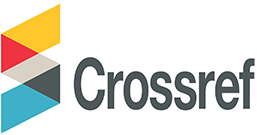Challenges in the Translation of Religious Culturonyms
DOI:
https://doi.org/10.69760/aghel.0250050004Ключевые слова:
religious culturonyms, linguaculture, religiocultural terms, culture-specific lexical itemsАннотация
The translation of culturonyms—culture-specific lexical items tied to the religious practices, beliefs, institutions, or worldviews of a source culture—poses myriad challenges. This paper examines the difficulties inherent in rendering religious culturonyms from a source into a target language and culture. Drawing on prior research in translation studies and selected case examples from sacred texts and novels, the study identifies major obstacles—semantic non-equivalence, cultural invisibility, translator competence, and audience reception—and outlines strategies commonly adopted (domesticating, foreignizing, explanatory) together with their trade-offs. The findings suggest that no single strategy suffices; rather, a context-sensitive balance is required, and translators must possess deep cultural and religious literacy. The conclusion considers implications for translator training and future research.
Библиографические ссылки
Abdel-Hafiz, A. S. (2020). The translation of religious words and expressions in Naguib Mahfouz’s Sugar Street: Domesticating or foreignizing strategy. Arabic Language, Literature & Culture, 5(4), 44–50.
Alhaddad, S., & Abdullah, G. (2023). Many of the problems that face translator are not linguistic or lexical one. Journal of Languages & Translation, 3(2), 52–78.
Alisoy, H. (2022). A discussion of simultaneous interpretation, its challenges and difficulties with its implementation. Znanstvena Misel (Issue Number), 40–42.
Babayev, J. (2023). Impact of socio-linguistic and socio-cultural factors on translation process. Sciences of Europe (128), 50–53.
Babayev, J. (2024). A language inside a language. Azərbaycan Dillər Universiteti və Naxçıvan Dövlət Universitetinin birgə təşkilatçılığı ilə Ümummilli Lider Heydər Əliyevin anadan olmasının 100 illiyinə həsr olunmuş “Tərcüməşünaslığın müasir problemləri” mövzusunda Respublika elmi konfransı.
Babayev, J., & Alaviyya, N. (2023). Translation procedures of culture bound-terms (CBTs). Journal of Science. Lyon, 48.
Javid, B., & Sadikhova, S. (2025, May). Culturonyms in food and drink: How language reflects cultural identity through cuisine. In Publisher. agency: Proceedings of the 10th International Scientific Conference «Modern scientific technology» (May 29–30, 2025), Stockholm, Sweden (p. 346).
Kabakchi, V. V., & Proshina, Z. G. (2021). Lexico-semantic relativity and versatility in translation and intercultural communication. Russian Journal of Linguistics, 25(1), 165–193.
Khukhuni, G. T., Valuitseva, I. I., & Osipova, A. A. (2019). Cultural words in sacral text and their translation: Linguistic and extra-linguistic factors. Russian Journal of Linguistics, 23(2), 487–508.
Petrova, E. E. (2017). The problem of realia translation outside the onomastic field (Based on the translation of Russian folk tales into English). International Research Journal, 11(65)
Sabir, B. J. (2023). Linguistic and cultural aspects of simultaneous translation. Progress in Science (4).
Sadikhova, S., & Babayev, J. (2025). Challenges encountered in translation of culture-bound and subject-specific terminology while using Google Translate. EuroGlobal Journal of Linguistics and Language Education, 2(3), 119–126.
Tchemodanova, S. M. V. (2024). Medieval and folk Russian culturonyms in contemporary American novels authored by bilingual heritage writers. Language Studies and Modern Humanities, 6(1), 30–35.
Valizadeh, M., & Ezzati Vazifehkhah, A. (2022). Cross-cultural analysis and its impact on religious interpretation. Kültür Araştırmaları Dergisi, 12, 104–114.
Yao, B., Jiang, M., Bobinac, T., Yang, D., & Hu, J. (2023). Benchmarking machine translation with cultural awareness. arXiv:2305.14328.
Загрузки
Опубликован
Выпуск
Раздел
Лицензия
Copyright (c) 2025 Acta Globalis Humanitatis et Linguarum

Это произведение доступно по лицензии Creative Commons «Attribution-NonCommercial» («Атрибуция — Некоммерческое использование») 4.0 Всемирная.







